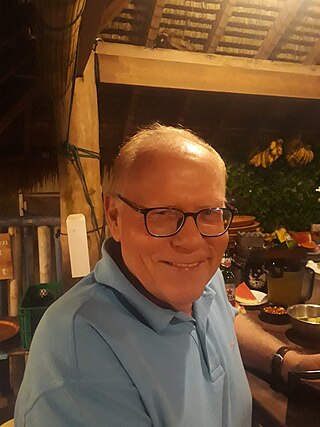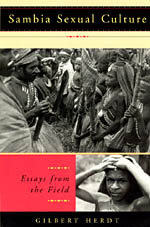Related Research Articles

Bronisław Kasper Malinowski was a Polish-British anthropologist and ethnologist whose writings on ethnography, social theory, and field research have exerted a lasting influence on the discipline of anthropology.
Medical anthropology studies "human health and disease, health care systems, and biocultural adaptation". It views humans from multidimensional and ecological perspectives. It is one of the most highly developed areas of anthropology and applied anthropology, and is a subfield of social and cultural anthropology that examines the ways in which culture and society are organized around or influenced by issues of health, health care and related issues.

Ego-dystonic sexual orientation is a highly controversial mental health diagnosis that was included in the American Psychiatric Association's Diagnostic and Statistical Manual of Mental Disorders (DSM) from 1980 to 1987 and in the World Health Organization's (WHO) International Classification of Diseases (ICD) from 1990 to 2019. Individuals could be diagnosed with ego-dystonic sexual orientation if their sexual orientation or attractions were at odds with their idealized self-image, causing anxiety and a desire to change their orientation or become more comfortable with it. It describes not innate sexual orientation itself, but a conflict between the sexual orientation a person wishes to have and their actual sexual orientation.
Robert Jesse Stoller, was an American professor of psychiatry at UCLA Medical School and a researcher at the UCLA Gender Identity Clinic. He was born in Crestwood, New York, and died in Los Angeles, California. He had psychoanalytic training at the Los Angeles Psychoanalytic Society and Institute from 1953 to 1961 with analysis by Hanna Fenichel. He has been criticized for research into finding the cause of transgender identities with intent to prevent them, and later similar research he inspired.
Psychological anthropology is an interdisciplinary subfield of anthropology that studies the interaction of cultural and mental processes. This subfield tends to focus on ways in which humans' development and enculturation within a particular cultural group—with its own history, language, practices, and conceptual categories—shape processes of human cognition, emotion, perception, motivation, and mental health. It also examines how the understanding of cognition, emotion, motivation, and similar psychological processes inform or constrain our models of cultural and social processes. Each school within psychological anthropology has its own approach.

Gilbert H. Herdt is Emeritus Professor of Human Sexuality Studies and Anthropology and a Founder of the Department of Sexuality Studies and National Sexuality Resource Center at San Francisco State University. He founded the Summer Institute on Sexuality and Society at the University of Amsterdam (1996). He founded the PhD Program in Human Sexuality at the California Institute for Integral Studies, San Francisco (2013). He conducted long term field work among the Sambia people of Papua New Guinea, and has written widely on the nature and variation in human sexual expression in Papua New Guinea, Melanesia, and across culture.
Tanya Marie Luhrmann is an American psychological anthropologist known for her studies of modern-day witches, charismatic Christians, and studies of how culture shapes psychotic, dissociative, and related experiences. She has also studied culture and morality, and the training of psychiatrists. She is Watkins University Professor in the Anthropology Department at Stanford University. Luhrmann was elected to the American Philosophical Society in 2022.
Person-centered ethnography is an approach within psychological anthropology that draws on techniques and theories from psychiatry and psychoanalysis to understand how individuals relate to and interact with their sociocultural context. The term was first used by Robert I. Levy, a psychoanalytically trained psychiatrist, to describe his psychodynamically informed approach to interviewing during his anthropological fieldwork in Tahiti and Nepal.

Cora Alice Du Bois was an American cultural anthropologist and a key figure in culture and personality studies and in psychological anthropology more generally. She was Samuel Zemurray Jr. and Doris Zemurray Stone-Radcliffe Professor at Radcliffe College from 1954. After retirement from Radcliffe, she was Professor-at-large at Cornell University (1971–1976) and for one term at the University of California, San Diego (1976).
Robert I. Levy was an American psychiatrist and anthropologist known for his fieldwork in Tahiti and Nepal and on the cross-cultural study of emotions. Though he did not receive a formal degree in anthropology, he spent most of his adult life conducting anthropological fieldwork or teaching in departments of anthropology. In developing his approach to anthropology, he credited his cousin, the anthropologist Roy Rappaport, and Gregory Bateson.
Donald F. Tuzin was an American social anthropologist best known for his ethnographic work on the Ilahita Arapesh, a horticultural people living in northeast lowland New Guinea, and for comparative studies of gender and sexuality within Melanesia. Tuzin was born in Chicago, Illinois, grew up in Winona, Minnesota, and spent his teen years again in Chicago. He received his B.A. from Western Reserve University in Ohio, where he became interested in anthropology and participated in the excavation of Native American archaeological sites left by the Mound Builders. He also received his master's degree from Case Western Reserve.
The following outline is provided as an overview of and topical guide to anthropology:
The Foundation for Psychocultural Research is a 501(c)(3) nonprofit organization based in Los Angeles that supports and advances interdisciplinary and integrative research and training on interactions of culture, neuroscience, psychiatry, and psychology, with an emphasis on cultural processes as central. The primary objective is to help articulate and support the creation of transformative paradigms that address issues of fundamental clinical and social concern.
Social anthropology is the study of patterns of behaviour in human societies and cultures. It is the dominant constituent of anthropology throughout the United Kingdom and much of Europe, where it is distinguished from cultural anthropology. In the United States, social anthropology is commonly subsumed within cultural anthropology or sociocultural anthropology.
Afflictions: Culture and Mental Illness in Indonesia is a six-part ethnographic documentary film series on the lives of the mentally ill living on the islands of Bali and Java in Indonesia. Each film documents the personal journey of a patient's diagnosis, care and treatment and the impact of culture, family, and community on the course of their illness. The films were directed and produced by ethnographic filmmaker and psychological anthropologist Robert Lemelson.
Robert Bush Lemelson is an American cultural anthropologist and film producer. He received his M.A. from the University of Chicago and Ph.D. from the Department of Anthropology at the University of California, Los Angeles. Lemelson's area of specialty is transcultural psychiatry; Southeast Asian Studies, particularly Indonesia; and psychological and medical anthropology. He is a research anthropologist in the Semel Institute of Neuroscience UCLA, and an adjunct professor of Anthropology at UCLA. His scholarly work has appeared in journals and books. Lemelson founded Elemental Productions in 2008, a documentary production company, and has directed and produced numerous ethnographic films.

Magic, Witchcraft and the Otherworld: An Anthropology is an anthropological study of contemporary Pagan and ceremonial magic groups that practiced magic in London, England, during the 1990s. It was written by English anthropologist Susan Greenwood based upon her doctoral research undertaken at Goldsmiths' College, a part of the University of London, and first published in 2000 by Berg Publishers.
Byron Joseph Good is an American medical anthropologist primarily studying mental illness. He is currently on the faculty of Harvard University, where he is Professor of Medical Anthropology at Harvard Medical School and Professor of Cultural Anthropology in the Department of Anthropology.

Sambia Sexual Culture: Essays from the Field is a 1999 book about the Simbari people and their sexual practices by the anthropologist Gilbert Herdt. The book received negative reviews, accusing Herdt of being biased in his approach and his conclusions. In the book the Simbari people are called Sambia people

Robert Alan Levine is an American anthropologist best known for his multidisciplinary and cross-cultural work on child development. He spent much of his academic career at Harvard University in the Graduate School of Education, where he has been emeritus professor since 1998.
References
- ↑ Herdt, G. 1999. "Clinical ethnography and sexual culture." Annual Review of Sex Research 10:100-19
- ↑ Herdt, G. 1999. "Clinical ethnography and sexual culture." Annual Review of Sex Research 10:100-19
- ↑
- Lézé, Samuel (2014) "Anthropology of mental illness", in : Andrew Scull (ed.), Cultural Sociology of Mental Illness : an A-to-Z Guide , Sage, pp. 31-32
- ↑ Levy, Robert I. and Douglas Hollan (1998) "Person-Centered Interviewing and Observation in Anthropology." Pp. 333-364 in Handbook of Methods in Cultural Anthropology, edited by H. R. Bernard. Walnut Creek, CA: Altamira Press.